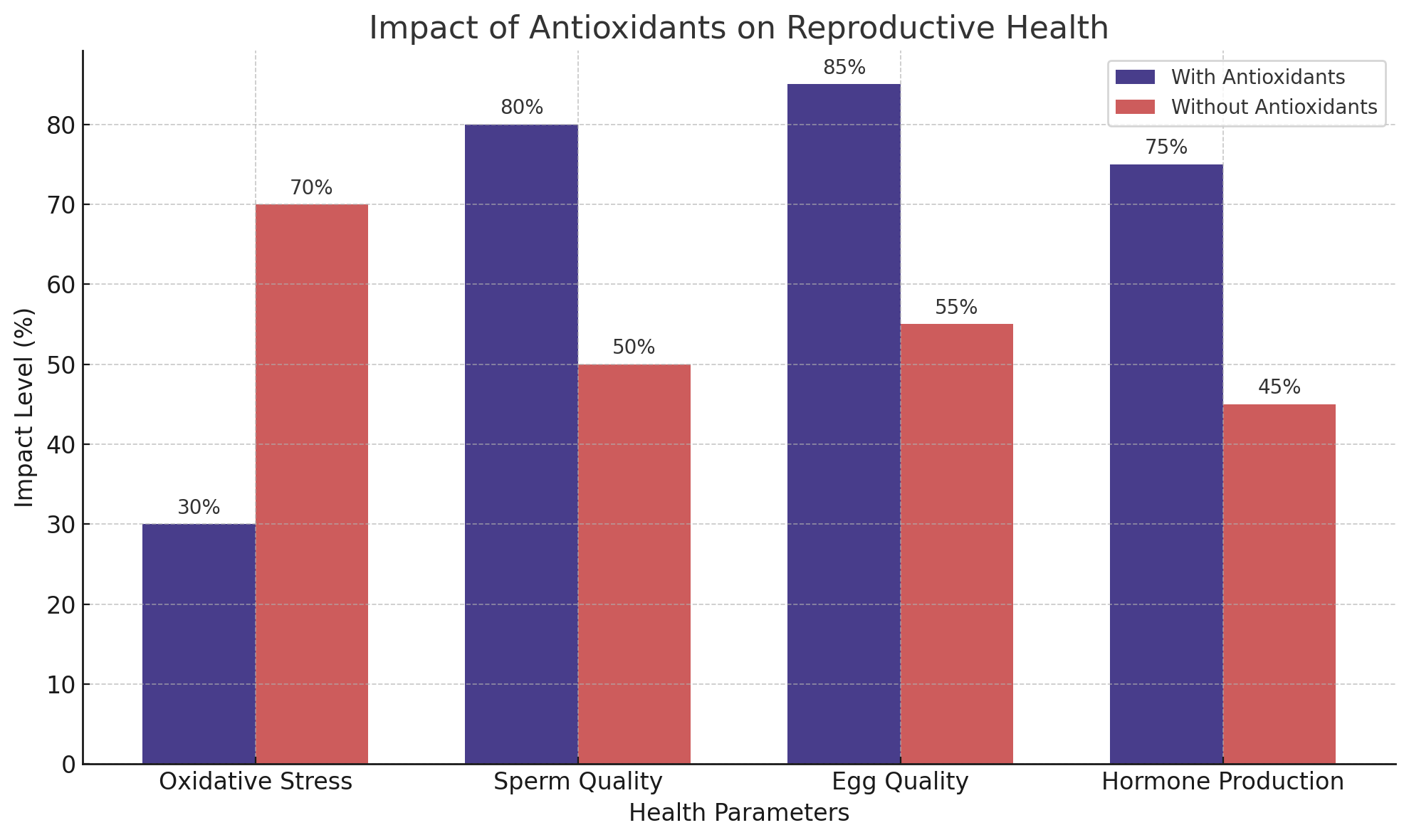The Role of Antioxidants in Enhancing Fertility: A Plant-Based Perspective
Hello, Friends.
Fertility issues are increasingly common, affecting millions of couples worldwide. In a world flooded with contradictory health advice, it’s become ever more challenging to discern the ideal foods for enhancing fertility. Amidst this confusion, returning to basics—specifically, antioxidants—can provide clarity and support for reproductive health. Here, we will explore the intriguing connection between antioxidants, predominantly found in plant-based foods, and enhanced fertility.
Understanding Antioxidants
Antioxidants are compounds that inhibit oxidation, a chemical reaction that can produce free radicals, leading to cell damage. The human body naturally produces free radicals, but external factors like pollution, radiation, and unhealthy diets can exacerbate their formation. Antioxidants neutralise these free radicals, protecting the body from oxidative stress and its associated damages.
The graph was created to visually represent the general impact of antioxidants on reproductive health based on the scientific consensus from multiple studies.
Antioxidants and Fertility
Numerous studies have highlighted the positive impact of antioxidants on fertility. Oxidative stress is known to impair reproductive functions by damaging sperm and egg cells, disrupting hormone production, and affecting the overall reproductive system. By counteracting oxidative stress, antioxidants play a crucial role in maintaining reproductive health.
Studies have demonstrated the importance of antioxidants in sperm motility, and the consequent fertility outcomes for men. In women, it has been found that oxidative stress negatively impacts ovarian function and embryo quality, emphasizing the importance of an antioxidant-rich diet antioxidants in mitigating the effects and increasing chances of conception.
Plant-Based Foods: A Rich Source of Antioxidants
Rich in antioxidant content, plant- based foods are packed with vitamins A, C, and E, as well as other potent antioxidants like flavonoids and carotenoids. These natural compounds have been linked to numerous health benefits, including enhanced fertility.
Fruits and Vegetables: Berries, citrus fruits, leafy greens, and bell peppers are excellent sources of antioxidants. Studies have shown that regular consumption of these foods can reduce oxidative stress and improve reproductive outcomes. For instance, a diet rich in fruits and vegetables has been associated with better sperm quality and higher pregnancy rates .
Nuts and Seeds: Almonds, walnuts, flaxseeds, and chia seeds are particularly high in vitamin E, an antioxidant known to protect sperm and egg cells from oxidative damage. Research indicates that men who consume nuts regularly have higher sperm counts and better motility.
Whole Grains: Whole grains such as oats and brown rice provide a steady supply of antioxidants, fibre, and essential nutrients. These foods help maintain hormonal balance and support reproductive health.
The Absence of Antioxidants in Animal Products
Contrary to plant-based foods, animal products are notably deficient in antioxidants. While they provide essential nutrients like protein and iron, they lack the diverse and potent array of antioxidants found in fruits, vegetables, and other plant-based foods. This discrepancy underscores the importance of incorporating a variety of plant-based foods into the diet to support reproductive health.
The role of antioxidants in enhancing fertility is increasingly evident, supported by a growing body of scientific research. By mitigating oxidative stress, antioxidants help protect and improve the function of reproductive cells, enhancing fertility. Embracing a diet rich in plant-based foods ensures an abundant intake of these vital compounds, promoting not just reproductive health but overall well-being.
References:


